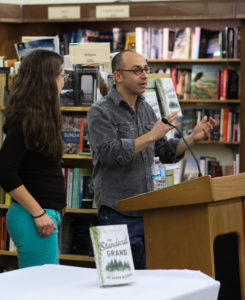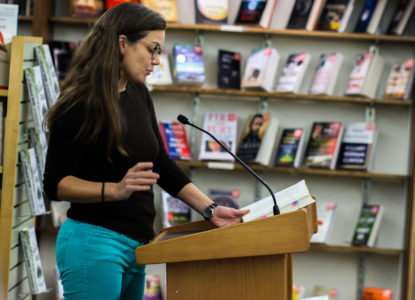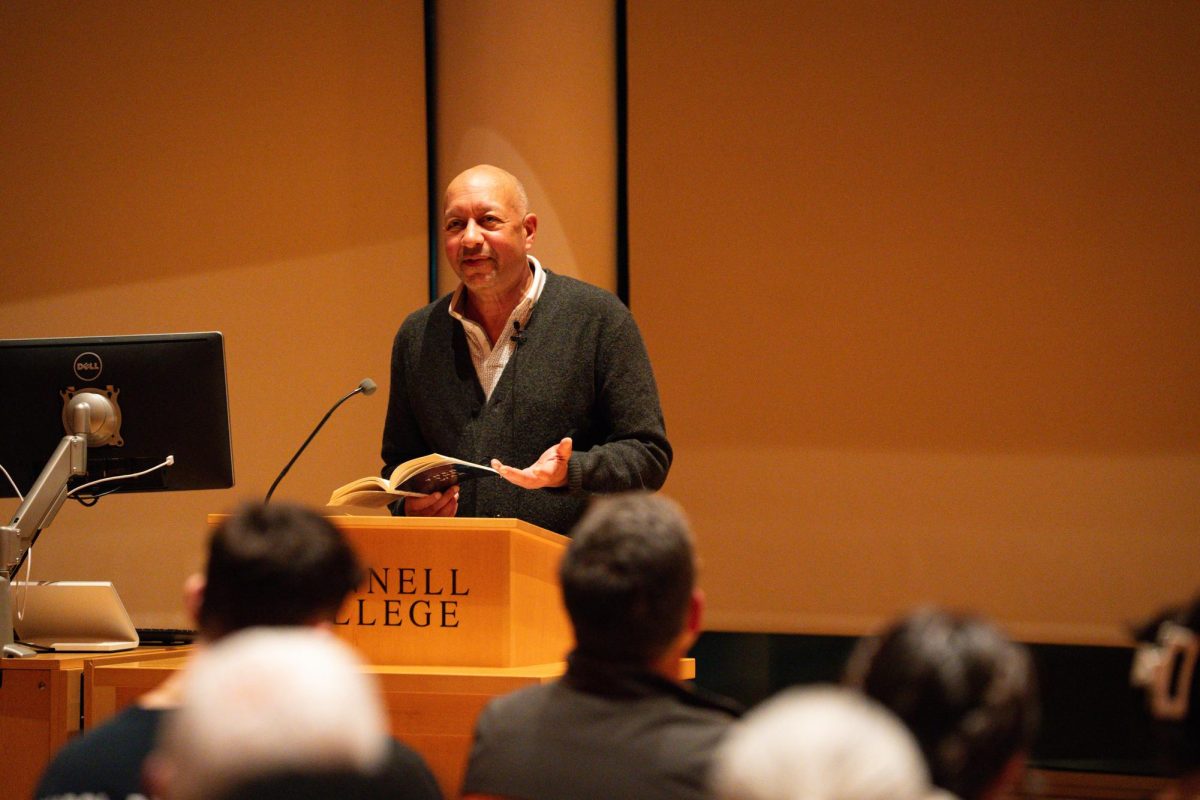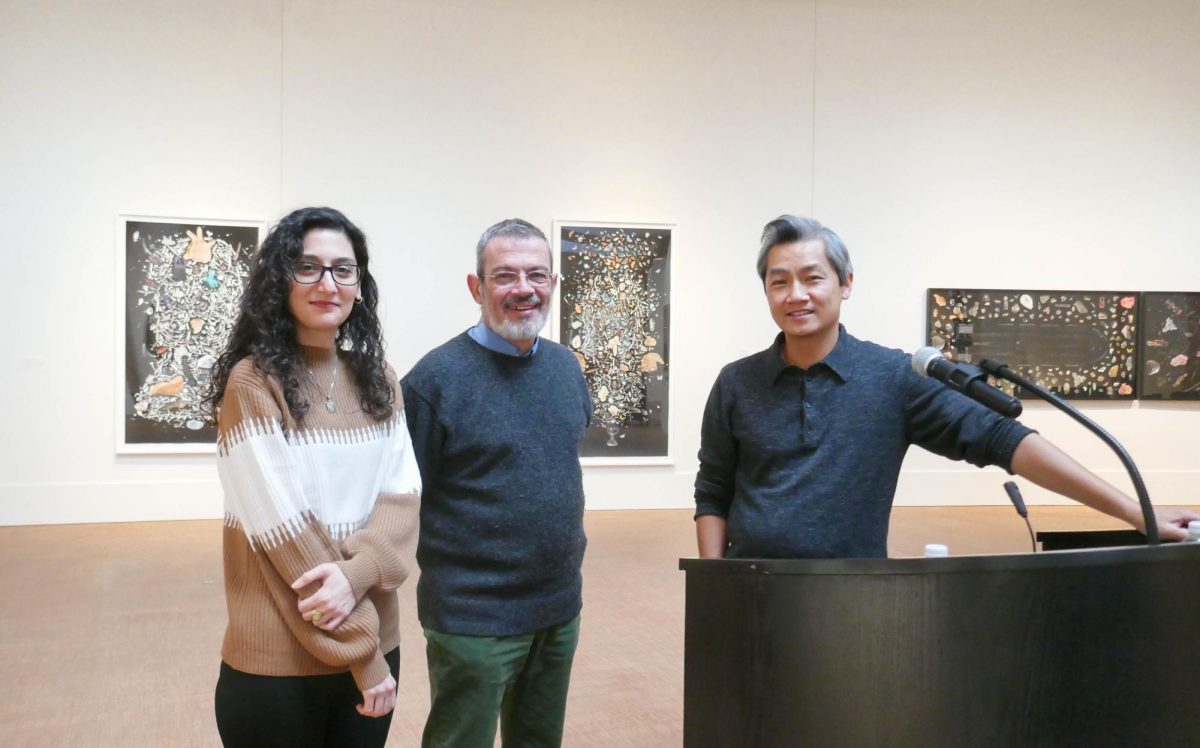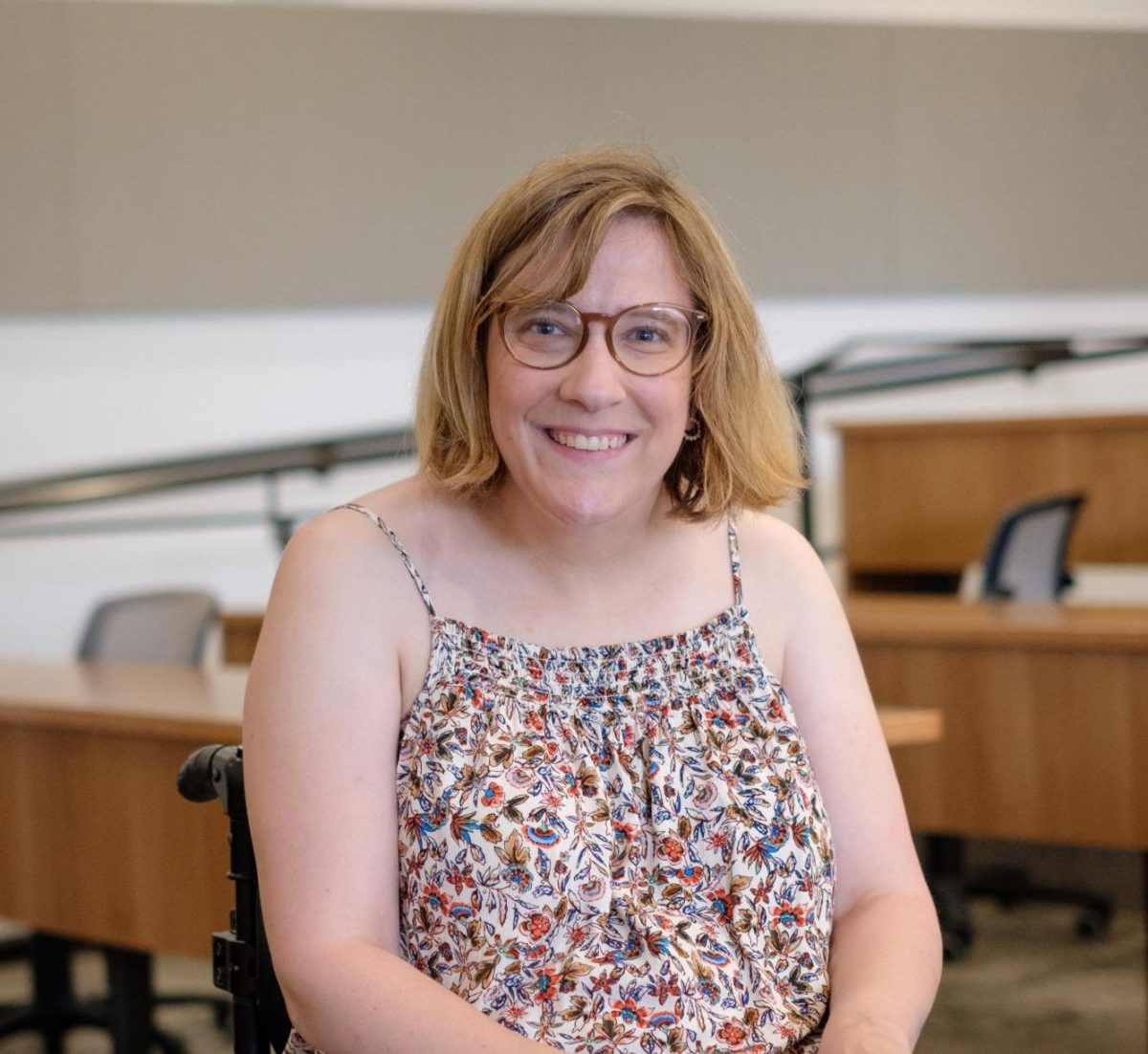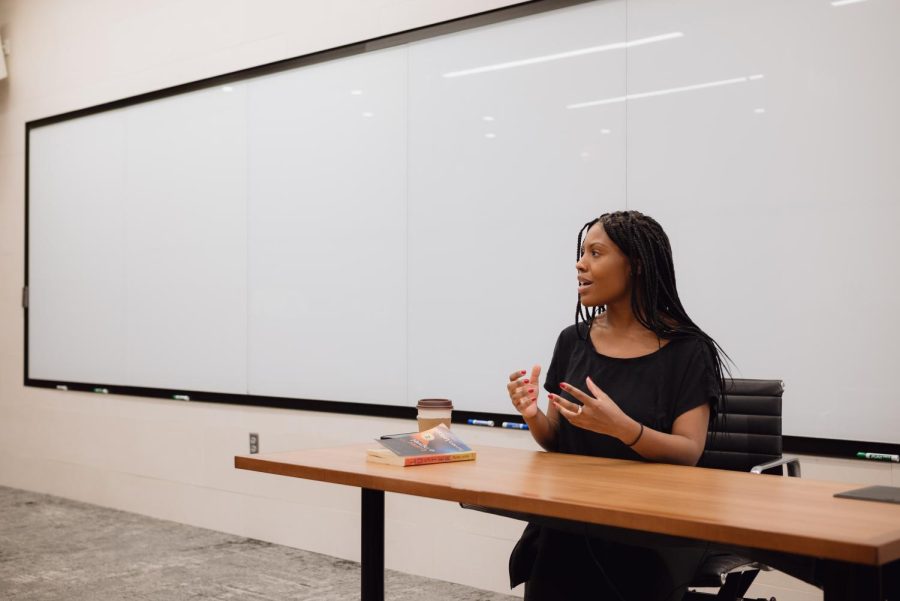By Ahon Gooptu
gooptuah@grinnell.edu
Every semester, the Writers@Grinnell series brings authors to the prairie to share their personal stories and read from their most recent works. To kick-start the spring semester of the series, the Pioneer Bookshop hosted award-winning author Thisbe Nissen and her husband, poet and novelist Jay Baron Nicorvo on Tuesday, Jan. 30.
The couple was in town as a part of their joint tour to promote their respective books. Nissen’s “Our Lady of the Prairie” is set in Iowa and narrates the story of a long-married theater professor and mother of an unstable daughter who struggles as her life is turned upside down. Meanwhile, Nicorvo’s “The Standard Grand” tells the story of a Vietnam veteran dealing with PTSD.
As the authors read from their respective works of fiction, they managed to enthrall the gathering at the Bookshop and transport them to two different worlds in the process. Their words, whether printed in their books or told in response to a question from the audience, served as inspiration to many budding writers as well as their professors.
“Inspiration is more like raindrops … they’re coming constantly. … It’s just your job to collect them,” Nicorvo said.
Nissen relies on her characters to solve her own problems, and as her problems never seem to give her a break, she finds herself always working on one thing or another.
“I think I write largely to understand a world that doesn’t make sense to me,” Nissen said.
Nissen and Nicorvo also spoke about their individual writing processes. They both emphasized the importance of reading and writing, as well as the research process, an integral part of putting a book together. Research also allows them to find inspiration which, as Nicorvo mentioned, is around them all the time.
“I read everything, … lots of essays, articles, book, memoirs,” Nicorvo said.
Nissen mentioned that perhaps the toughest part of a writer’s job is to read a draft and decide what remains in the story and what “research” needs to be taken out to prevent it from assuming the form of a textbook. Out of all the research that a writer does, possibly five percent of it makes it to the final draft. Writing in wrong directions, writing something that feels false and then going back and having the confidence to cut it out — it’s all a part of the process.
Dealing with misogynistic publishers has always been an obstacle for Nissen. But now she refuses to give in to their policy of publishing women who write smaller books that people “want to read” while men are deemed “ambitious” when they get a big, “risky” novel published.
“I’m not gonna trim it down and give you a novel you like,” Nissen said, recounting a confrontation with a publisher.
